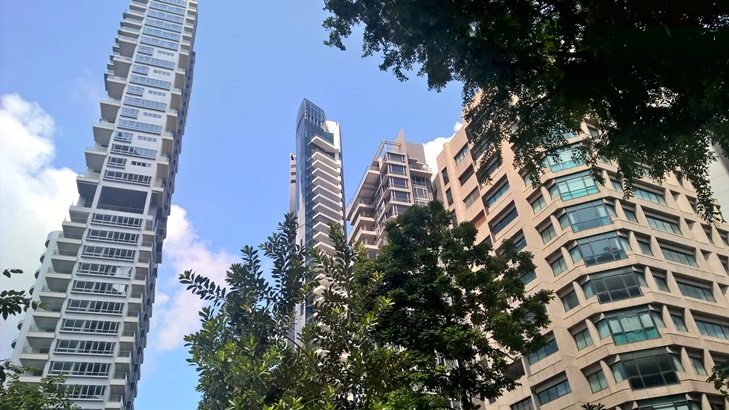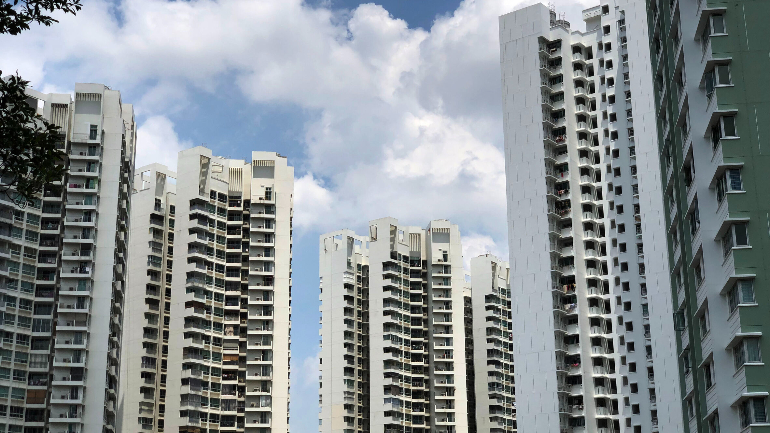
3rd January to 10th January
2021 ended on a high for the Singapore property market. As supply for private property and HDB flats dipped, prices peaked. The response from the Singapore government was a round of cooling measures announced in late December 2021.
1. Enhanced protection, more accurate information for homebuyers among proposed changes to Housing Developers Rules
The Urban Redevelopment Authority (URA) has launched a public consultation on the proposed changes to the Housing Developers Rules (HDR). Under the proposed changes, developers are required to provide more information regarding their housing projects such as the storey layouts, location of key communal facilities as well as information on ground rent payable and the landowners’ identity.
To enhance the protection of home buyers, URA also proposed amendments to the terms within the standard Sale and Purchase Agreement. These include:
- Reducing the threshold for claims for shortfall in the area of a unit to 2%, from 3% currently
- Moving the commencement of the 12-month defects liability period and home buyer’s obligation to pay maintenance charges closer to the date home buyers take possession of their properties
While the changes are beneficial to buyers, Lee Sze Teck, Senior Director (Research) at Huttons Asia, noted that the proposed changes “place a larger burden on developers and add to the costs of compliance”. He pointed that some of these costs “may eventually be passed on to buyers”.
With the cooling measures in place, there will likely be a shift towards buying private property for own stay. The probability of these properties being the owner’s sole unit is also higher. These rule changes mark a step towards enhancing consumer protection, which is beneficial for ensuring these owner-occupiers live in a well-built property.
2. Private home prices rose 10.6% in 2021
Singapore saw private home prices jump 10.6% in 2021, the highest since 2010 when prices rose 17.6% and significantly higher than the 2.2% gain registered in 2020. Flash estimates from the Urban and Redevelopment Authority (URA) showed that private home prices accelerated for the seventh consecutive quarter in Q4 2021, rising by 5% compared to the 1.1% growth in Q3 2021.
With the rollout of the new property cooling measures, ERA’s Key Executive Officer Eugene Lim expects 2022 to be a genuine home buyer’s market, with the first six months being tough due to a mismatch of seller’ and buyers’ expectations. And with private property transactions for 2022 “unlikely to be anywhere near 2021’s record levels, we are likely to see property prices remain flat or at most, continue to increase very moderately by 1 to 3% over the course of the year”, he said.
Due to the government tightening the land supply for the Government Land Sales (GLS) Programme, we’re still looking at tapering supply in 2022. As it is, we’re only expecting 11 new ECs and condo launches for the year. Due to limited supply, the prediction for private properties to be a more “genuine home buyer’s market”, and the newly introduced cooling measures, it can be safe to assume private home prices are likely to increase, but at a slower pace.
Still, this is not a sign to go on a property spending spree. As interest rates are expected to gradually rise, homeowners should exercise caution before upgrading from an HDB flat to private property, or from a smaller to larger private property.

3. HDB resale prices up 12.5% in 2021
Resale prices of Housing and Development Board (HDB) flats increased 3.2% in Q4 2021 and 12.5% for the whole of 2021, showed flash estimates from the Housing Board. Huttons Asia noted that resale prices picked up pace in Q4 2021 after remaining steady at about 3% in the past three quarters.
Given the strong demand for HDB resale flats, ERA’s Key Executive Officer Eugene Lim expects prices to further increase in 2022. With higher resale prices and more Build-to-Order (BTO) offerings from HDB, Lim believes that Singapore is unlikely to register the same resale volume as recorded in 2021. “With lesser transactions of around 25,000 for 2022, the pace of price increase in the resale HDB market may slow down,” he added.
Until the BTO construction delays are resolved, it is unlikely that the demand for HDB resale flats will dip. Consequently, prices are likely to continue increasing. All we know is, public housing affordability has become an increasingly hot topic, especially among younger Singaporeans.
Related article: 73 Freshly MOP-ed HDB Resale Flats in Singapore to Expect in 2021/2022
4. Recent property cooling measures timely
The introduction by the government of its latest property cooling measures has been timely, given the double-digit hike in private and public home prices in 2021, outpacing Singapore’s preliminary gross domestic product growth of 7.2%, reported The Straits Times (ST).
The tightening of borrowers’ total debt servicing ratio (TDSR), for instance, would prove helpful in ensuring that households are not overstretched, given the potential increase in interest rates this year.
But while analysts expect the new curbs to moderate price growth across public and private markets, the measures will unlikely turn the sellers’ market into a buyers’ market overnight. This comes as unsold home inventory is now at record low levels. JLL’s Senior Director of Research and Consultancy Ong Teck Hui said developers face less pressure to reduce prices, “especially if they are in a healthy financial position”.
Typically, it takes one or two quarters before the effects of cooling measures are seen. More time is needed before we can ascertain the results of the newly introduced policies. Still, the move comes at an apt time; hopefully, this will contribute towards improving housing affordability.
Related article: HDB to EC, Condo, or Landed Property: How Much Must You Save to Upgrade in Singapore (2021)

5. Singapore to see dwindling private home supply, growing rental demand in 2022
With unsold private home stock falling to its lowest level in about four years at 17,140 units as of end-Q3 2021, analysts see fewer units from new launches in 2022, reported Channel News Asia (CNA).
This comes after the government moderated the supply from the Government Land Sales (GLS) Programme over the last two years, said Christine Sun, Senior Vice President of Research and Analytics at OrangeTee and Tie. Huttons Asia’s Senior Director of Research Lee Sze Teck believes that about 5,400 units will be offered across some 40 launches this year, down from 2021’s over 10,500 units.
Meanwhile, Singapore’s rental market may witness a growing demand, amid construction delays as well as the re-opening of the city-state’s borders. Notably, rental rates for private homes rose 7.1% during the first three quarters of 2021 and will likely continue to gain pace. Sun expects rents to rise at a faster pace of 8 to 11% in 2022, with leasing volume climbing by 3 to 4%.
We see several groups competing for private home rentals in 2022. Foreigners and locals who are deterred by high HDB resale flat and private property prices (with foreigners paying higher ABSD rates thanks to the new cooling measures); millennials looking to rent for more space due to enduring work from home arrangements; young couples and families affected by BTO construction delays. Demand from these groups is likely to keep rental prices high in 2022.
6. Government releases seven sites under 1H 2022 for Industrial GLS
The Ministry of Trade and Industry (MTI) has launched seven sites with a total area of 4.48ha under its Industrial Government Land Sales (IGLS) programme for 1H 2022. The IGLS list comprises three Confirmed List sites and four Reserve List sites. The Confirmed List sites are located in Plot 4 Jalan Papan, Plot 10 Tampines North Drive 5 and Plot 2 Tanjong Penjuru. For the Reserve List sites, two are in Jalan Papan, while the other two are in Tampines North Drive 5 and Woodlands Industrial Park.
7. More unable to repay full CPF amount after selling property in 2020
In 2020, about 4,580 persons who used their Central Provident Fund (CPF) monies to finance their mortgages were incapable of fully refunding the amount after having sold their properties. Data published by the CPF Board showed there was an increase from 2019 and 2018, where about 3,960 and 3,380 people failed to do so, respectively.
However, none of these persons was required to top up their CPF in cash. Having been able to sell their properties at market value allowed them not to do so.
This statistic highlights how ‘paper gains’ are not adequate to negate transaction and financing costs in today’s property market. MAS previously released an advisory in December 2021, cautioning homeowners to exercise prudence in the wake of mortgage interest rates being expected to gradually rise in 2022 and beyond.
Related article: CPF Housing Loan in Singapore: Can I Use CPF to Buy Condo or HDB Flat? Yes, but Here Are 4 Reasons Not To

8. MCT, MNACT propose merger
The managers of Mapletree Commercial Trust (MCT) and Mapletree North Asia Commercial Trust (MNACT) have proposed a merger that will make the combined entity one of Asia’s top 10 largest real estate investment trusts (REIT).
The combined entity, to be named Mapletree Pan Asia Commercial Trust (MPACT), will have a market capitalisation of about $10.5 billion and will serve as a “flagship commercial REIT positioned to be the proxy to key gateway markets of Asia”, said the managers in a joint release.
They noted that the merger would be done via a trust scheme of arrangement with MCT acquiring all MNACT units in exchange for new units in MCT or a mix of cash and MCT units. MNACT unitholders will get a scheme consideration of $1.1949 for each unit held as at the record date, taking the total scheme consideration to $4.215 billion.
Related article: REITs Vs Property in Singapore: 6 Factors Comparing Which Is a Better Investment
9. Ascott registers record growth in units in 2021 despite COVID-19
The Ascott, the wholly-owned lodging business unit of CapitaLand Investment Limited (CLI), has secured 15,100 units across 72 properties globally in 2021, marking the fifth straight year it registered record growth in units despite the COVID-19 pandemic.
Serviced residences accounted for over 60% of the new signings. CLI’s Chief Executive Officer for Lodging Kevin Goh said over 80% of the new units secured last year were under management and franchise contracts, which was in line with the asset-light growth strategy of Ascott.
Ascott also closed 2021 with its highest-ever property openings as it launched more than 8,200 units across 40 properties in 10 countries. The figure is more than double the units opened in 2020.
Related article: Guide to Your First Investment Property: Singapore or Overseas?
Looking for a property in Singapore? Visit PropertyGuru’s Listings, Project Reviews and Guides.
Cheryl Chiew, Digital Content Specialist at PropertyGuru, edited this story. To contact her about this story, email: cheryl@propertyguru.com.sg.

